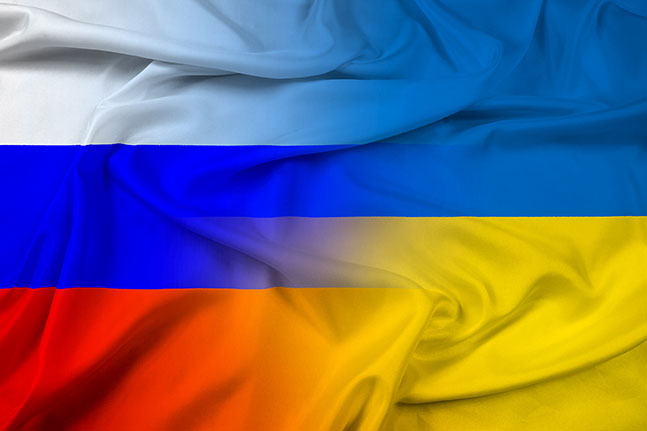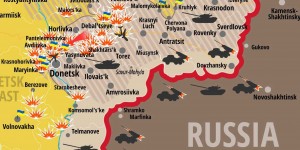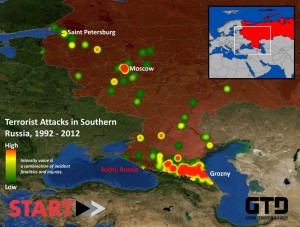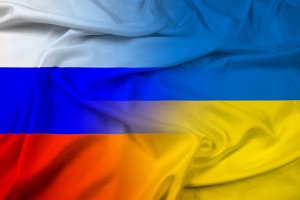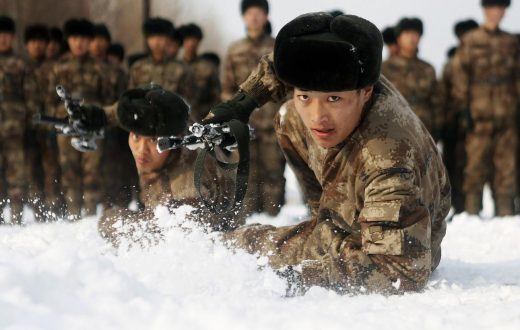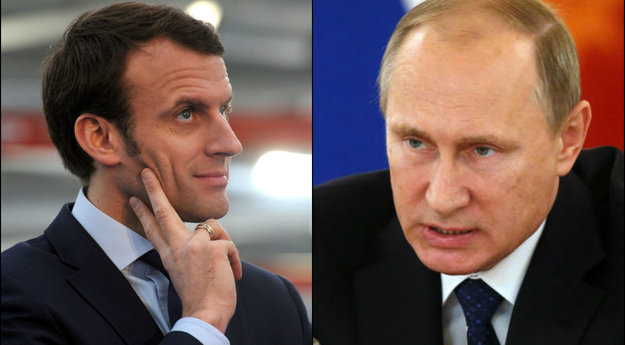Russia Tries to Sow a Trans-Atlantic Divide 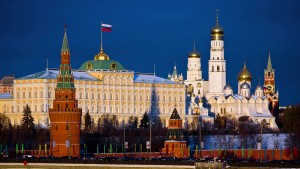
Russia’s standoff with the United States will grow more complicated this quarter as Moscow tries to soften the Europeans on sanctions over Ukraine even as it escalates its military involvement in Syria. Moscow’s maneuvers are designed in part to draw the United States into a Strategic Dialogue ultimately yielding a bargain with Washington to pull back on sanctions and set limits on U.S. involvement in the Russian periphery. But the United States will only tacitly engage with Russia. Washington will be more compelled to sustain economic pressure against Russia while trying to reinforce U.S. security guarantees to allies in Russia’s near abroad.
Russia will be using the fourth quarter to create enough divisions withing the European camp to give Moscow a chance of preventing a unanimous European vote to extend sanctions in January. Russia will only need to sway a handful of European countries to allow the sanctions to expire early next year; it will lobby Germany, France and Italy particularly strongly. The closer the Europeans draw to Moscow, the more Russia will be able to drive a wedge between the United States and its European allies as gaps widen between those willing to bargain with Moscow and those trying to maintain a hardline stance, such as Poland and the Baltic states.
Keeping relative calm in Eastern Ukraine this quarter will be essential to Russia’s strategy with the Europeans. Russia will use its influence over separatists in eastern Ukraine to pull back heavy weaponry from the frontlines and to delay elections in the separatist regions in exchange for political concessions from Kiev on constitutional changes. Kiev will not be able to make meaningful compromises on eastern Ukraine’s autonomy without risking a collapse of the government, especially ahead of Oct. 25 local elections. The Ukrainian government could come under greater political pressure following those elections, with potential shake-ups in the Cabinet or reshuffling within the ruling coalition. Strong opposition from far right and ultranationalist group will further constrain Kiev as it tries to recognize and empower the separatist territories. Ukraine’s loan from Russia for $3 billion is due in December. This deadline will play into the negotiation process between Kiev and Moscow as Ukraine looks to the International Monetary Fund (IMF) for assistance and as Russia attempts to use a potential default to complicate further IMF assistance to Ukraine.
The United States will provide enough financial and security backing to Kiev to prevent the government from caving to Russian demands, and it will continue to encourage the Europeans to maintain their sanctions next year. Even as Russia appears cooperative on Ukraine this quarter, it will still have the means to increase military pressure if its negotiations with the Europeans break down under U.S. pressure.
Relations between NATO and Russia will be tense over the next few months in spite of the calm in Ukraine. NATO still has room to increase training missions in Ukraine under the auspice of rebuilding the Ukrainian military while continuing its permanent rotation of forces in Central Europe. Polish rhetoric against Russia and appeals for Western security commitments will be on the rise during Poland’s election season. Sweden and Finland, meanwhile, will draw closer to NATO but will stop short of joining it. Russia will counter NATO activity in its periphery through military exercises and by pressing Belarus to follow through on a long-pending deal to host a Russian military air base.
Russia’s expanded role in Syria will further strain relations with Turkey. Tensions with Ankara have been rising because of Russia’s improved relationship with Azerbaijan and because of stalled talks on a natural gas agreement — a prerequisite for Turkey to sign onto TurkStream, the proposed gas pipeline that would benefit Turkey while enabling Russia to circumvent its existing route to Europe via Ukraine. Turkey may try to work out an understanding with Russia over Turkey’s desire to establish a safe zone for refugees in northern Syria, but Moscow will likely prioritize its relationship with Iran this quarter and scuttle Turkey’s plans.
Russia-Asia Relations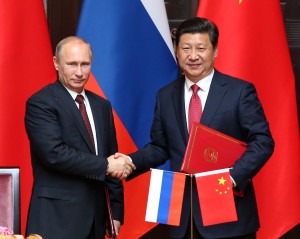
Russian and Japan will attend to mend relations this next quarter, with a possible visit by Putin to Japan before the end of the year. There is still a long way to go before Tokyo and Moscow can be as friendly as they were around 2013, when the two were making progress on a peace treaty to settle the disputes over islands — disputes that began when World War II ended. Sustained U.S. economic pressure on Russia will make it difficult for Japan to ease its own sanctions on Russia, especially as Russia’s terms for a peace deal formally ending World War II are still politically intolerable to Tokyo. However, the political snags in the relationship will do little to slow growing economic ties between Russia and Japan. Russia will also continue its discussions with China over the Power of Siberia pipeline that would boost Russian natural gas exports from Eastern Siberia to Asia. We do not, however, anticipate a breakthrough this quarter on pricing.
The Kremlin Budget Debate Intensifies
The Kremlin debate will focus on Russia’s weak economy. The Russian ruble is in store for more volatility against a strengthening dollar. Though a stronger dollar will benefit many large exporters like Gazprom and Rosneft, it will also put more stress on the Russian people and regional governments that rely on the ruble for daily transactions. The majority of the regional governments are near defaults or bankruptcy, and the regions need approximately $7 billion in the fourth quarter to service their debt. The Kremlin has pledged financial assistance before the end of the year and is encouraging Russian banks to renegotiate much of the region’s debt. These moves will enable the regions to forestall social unrest, but harder days are in store for 2016.
The Kremlin will also debate the upcoming 2016 government budget, which must come to a vote by December. The budget debate will solidify Kremlin clan lines, as some — such as Finance Minister Anton Siluanov — are pressing to cut defense spending and raise taxes on Russia’s politically influential energy firms. A cut in defense spending in the next budget is unlikely. Russian oil Giant Rosneft battled Siluanov once before when Rosneft was refused financial assistance from the government, and is dead set against paying more taxes to the government. In past disputes between the two, Siluanov has been able to stand up to Rosneft chief Igor Sechin, though this time Sechin is building a coalition of powerful elites to protect his firm and is also threatening to cut oil production next year if additional taxes are imposed. In addition to battling Siluanov, Rosneft will be maneuvering to elevate regional politicians friendly to Rosneft interests at the expense of rival energy firms such as Lukoil and Gazprom. Momentum is also starting to build against Gazprom’s position in Russia, particularly its monopoly over exported natural gas. A decision to break Gazprom’s hold will not be made this quarter, but factions are forming in the Kremlin to start curbing Gazprom’s power in the future.
The FSU Periphery
This quarter will be a contentious one for the standoff between Armenia and Azerbaijan over the breakaway territory of Nagorno-Karabakh. Azerbaijan will continue to pressure Armenia militarily along the line of contact while it keeps close to Russia politically in hopes of changing the status quo of this long-frozen conflict. Armenia will resist making political concessions to Azerbaijan at this stage of the dispute, focusing instead on holding its position on the frontline. Though Yerevan is becoming more distrustful of Russia’s intentions, it also lacks an alternative patron to balance against a more assertive Azerbaijan.
Belarus will hold presidential elections Oct. 11. While the power of long-standing leader Aleksandr Lukashenko will probably not be seriously challenged, the manner in which the elections are conducted will have important ramifications on Minsk’s balancing act between Russia and the West. Belarus has improved ties with the European Union and the United States in an effort to convince them to ease the sanctions they put in place after last elections. But Minsk has also been intensifying its security cooperation with Russia, particularly via plans for a new Russian airbase to be opened in the country. Belarus will attempt to maintain this balance, though in this quarter Minsk can be expected to lean more heavily toward Moscow.
Moldova will be particularly volatile this quarter as anti-corruption protests by various groups in the country have generated support from pro-Russian parties. The pro-Russian groups have vowed to expand the protests in the next quarter if the government does not capitulate to their demands to remove oligarchs from power, dismiss President Nicolai Timofti and hold snap parliamentary elections in March 2016. These internal divisions will continue to undermine Moldova’s EU integration drive and threaten the rule of the Moldovan government in its current form.
Central Asia will face several challenges in the fourth quarter, challenges stemming from the region’s slowing economies. In Kazakhstan, low oil prices will continue to hamper the country’s oil industry. The government has plans to cut oil production if prices fall below $40 a barrel. Domestic and foreign oil firms are struggling with the government to allow cuts in jobs and salaries of their workers. But the government knows the oil workers in the western regions of the country will protest if there are changes to labor codes to allow such reductions. The government will try to find a compromise between the executives and the workers, but serious strikes could take place if the negotiations fail. Small strikes will likely continue in other regions of the country, thanks to economic instability and currency volatility. The situation will only aggravate the power struggle among the elite, who will fight over every piece of the economic pie.
In Tajikistan, the fourth quarter will be rife with instability related to the government crackdown on opposition and Islamist groups. The uptick in Taliban and militant activity in Northern Afghanistan is also playing into the fears of Central Asian states, particularly Tajikistan. This and the wave of security incidents that came after the banning of the Islamic Renaissance Party of Tajikistan are likely to continue into the fourth quarter. Supporters of former Deputy Defense Minister Abduhalimov Nazarzoda, accused of orchestrating attacks on the government, are likely to experience more crackdowns by the regime’s security forces.

